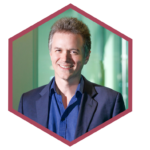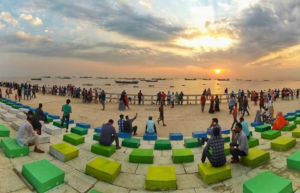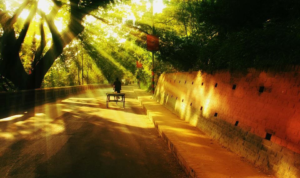Greetings From Bangladesh: Part Four | AUA Blog
Dave is in the midst of a three year term as Registrar of the Asian University for Women (AUW) in Bangladesh. AUW is a recently founded international university that offers talented women education and opportunities to enter leadership roles. Here he speaks of his experience in the fourth of a series of blogs.

Dave Dowland
Clerk to the AUA Board of Trustees from 2015 to 2018
Academic Registrar of Solent University
Registrar at Trinity Laban Conservatoire of Music and Dance
We have just concluded the AUW Maths and Science Summer School (apparently the first of its kind in Bangladesh) the aim is to encourage female students into careers in Engineering, Science, Technology and Maths. The students were mostly from Bangladesh but there were some from other countries too – eg Yemen and Syria. It was a collaboration – input from our neighbours at the University of Chittagong. AUW, as a US led university, brought in colleagues from Stanford, MIT, Harvard, Bryn Mawr, Haverford and the University of Chicago, to support the home team. The students and teachers were sad to leave after five good weeks together.
We had some other guests who are working for female empowerment and social construction; a Bangladeshi professor who propelled herself into a  distinguished international academic career as an electrical engineer within a traditional society. She was motivated by her sheer, natural interest in the subject. She now leads the advocacy movement for Women in Engineering in Bangladesh. It’s a remarkable personal career story.
distinguished international academic career as an electrical engineer within a traditional society. She was motivated by her sheer, natural interest in the subject. She now leads the advocacy movement for Women in Engineering in Bangladesh. It’s a remarkable personal career story.
Nearly a year into living here, I have been reading about Bangladesh and Chittagong, the history and how power and society work. It’s a rich story in this ancient port city in the Bay of Bengal, of personal, kinship and client/patron connections through powerful, elite families; the mixing of local and foreign influences – so many down the centuries – Portuguese, Mughal, Burmese etc to the imperial influence of the British; the struggles and co-existence of the great religions, Moslem, Hindu and Buddhist; the violent interruption from Pakistan after the British left: the power of trade and commerce, the military and the politicians. It’s interesting, from the vantage point of an outsider, to experience these relationships working and available for constructive use, as I travel around this close knit region and take part in making connections for AUW .
One study claims ‘Democratic premises and egalitarian assumptions are a simply irrelevant theorem that do not fit here’ . There is an argument often used here that some trade-off of democracy is justified in the interests of economic and social development. That is highly disputed. Of course democracy itself  needs checks and balances to function or there can be a terrible mess.
needs checks and balances to function or there can be a terrible mess.
This is not an easy country to govern with the environmental volatility – with the infrastructure historically swept away periodically – you don’t see many big monuments to power although there are some awesome world heritage sites. But Bangladeshis (like human beings generally) are highly resourceful and seem to know how to get things done, weaving their way through the power structures.
I realized on returning to the UK recently what many ex-pats have found, that actually you can never return home again since you have changed forever and your view your old home differently. Chittagong is a mega city with an infrastructure overrun by the demands of millions but it is a sensational and beautiful place.

0 comments on “Greetings From Bangladesh: Part Four | AUA Blog”